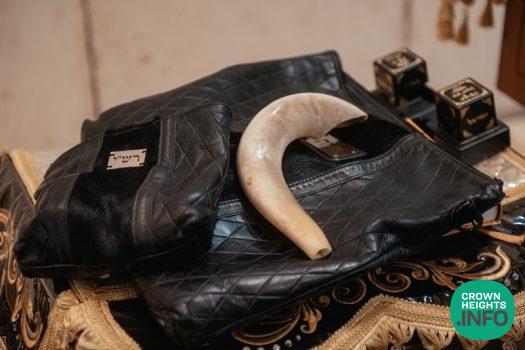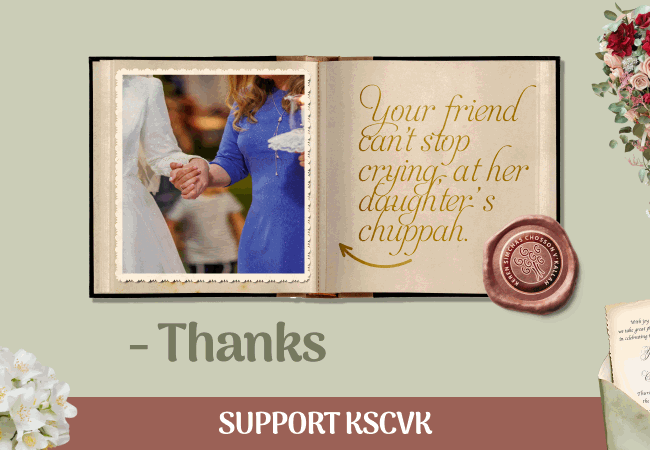
Weekly Dvar Torah: Standing Together at the Gates of a New Year
The Torah portion always read before Rosh Hashanah begins with a striking declaration: “You are all standing today before the L-rd your G-d… from your leaders down to your water carriers… to pass into the covenant.” (Devarim 29:9–11). Ten categories of Jews are listed, spanning every level of society, reminding us that on the threshold of the Day of Judgment, no one is excluded.
One might think, as Rosh Hashanah approaches, “Who am I to stand before the King of Kings? I am not a leader, not a scholar, not among the great.” But Hashem reassures us: you enter with Me into a covenant. A covenant is not a temporary arrangement or a fragile agreement; it is a bond beyond circumstance. Just as two dear friends who wish to seal their friendship forever would cut a covenant—walking between two halves and declaring that just as these halves are really one whole, so too they are one essence—so Hashem binds Himself with us.
On the day of judgment, before a single decree is written, G-d says: know that you and I are one. I will judge you as one who is bound to Me with unbreakable love. And so, as we crown Him King on Rosh Hashanah, our prayer is not only that He rule the universe in majesty, but that we feel His closeness, His unity with us, His covenant that never fails.
The Cry of the Shofar
The Baal Shem Tov gave a parable: A king sent his beloved son, the prince, away to explore the world. At first, the prince lived well, but gradually he squandered his wealth, lost his bearings, and forgot the language of his homeland. Dressed in rags, unrecognizable, he finally returned to the palace. The guards dismissed him as a tramp. Unable to speak, he burst out in a raw, wordless cry. His father, the king, heard the voice, recognized it instantly, and ran to embrace him.
That, says the Baal Shem Tov, is the Shofar. We may forget who we are, get lost in exile, speak a foreign language, or live far from the palace. But on Rosh Hashanah we cry out—not in words, but in the pure sound of the soul. And the King, our Father, recognizes our voice. He embraces us, not as strangers but as His only child returning home.
The Shofar is not about eloquence or explanations. It is the primal bond of father and child, beyond words. That is why its cry pierces heaven and awakens compassion, assuring us that the gates of the palace are open.
The Cry That Changes Decrees
On Rosh Hashanah and Yom Kippur, the prayer U’nesaneh Tokef fills us with awe: “Who will live and who will die, who in peace and who in turmoil…” Yet it concludes with the joyous cry: Teshuvah, Tefillah, Tzedakah—repentance, prayer, charity—remove the severity of the decree.
At first glance, this seems strange. On such a lofty day, should we be concerned with our needs—health, livelihood, peace? Isn’t that selfish compared to Hashem’s majesty? But here we learn from Chana, who prayed intensely for a child. When Eli the Kohen rebuked her for asking for something so personal, she answered: “I pray not for myself, but for Hashem—I want a child who will serve Him.”
This is the key. Our needs are not separate from G-d’s will. When we ask for health, we ask for strength to serve Him. When we ask for sustenance, we ask for the means to fulfill His Mitzvos. When we ask for peace, we ask for the space to build His Kingdom. Our needs become His needs, and our cry becomes one with His desire.
Crowning the King
The Gemara teaches that the world was truly created on Rosh Hashanah—not on the first day of creation, but on the sixth, when Adam was formed. Why? Because creation is incomplete without mankind’s acceptance of Hashem as King. From the very first day, creation waited for the moment when Adam would proclaim, “Let us bow and kneel before Hashem our Maker.”
And so it is every Rosh Hashanah. Hashem asks us: “Say before Me verses of kingship, so that you will crown Me as King.” Of course, He does not need us. But He chooses to make Himself “dependent” on us. In His love, He says: “Without you, I am not King.”
That is the awesome gift of Rosh Hashanah. Hashem entrusts the very renewal of creation into our hands. Our Shofar blasts, our prayers, and our acceptance of His Kingship draw down the energy for the entire year to come.
Toward the Great Shofar
The Shofar has accompanied our history: at Sinai, at the Jubilee, at Rosh Hashanah, and at Ne’ilah. But the prophets speak of a Great Shofar that will be blown at the time of Moshiach, awakening even the most distant souls.
This Shofar will reach both those “lost in Assyria” (lost in indulgence) and those “expelled in Egypt” (oppressed in suffering). Its sound will pierce every barrier, drawing every Jew back to Hashem.
In a sense, we are already hearing its echo. After the Six-Day War, the Rebbe pointed to the great awakening among Jews worldwide—millions reaching for tefillin, Torah, and Mitzvos—as the first notes of that Great Shofar. In our own times, too, moments of pain are followed by great awakenings, signs that the final redemption is near.
A New Year, A New Awakening
As we stand together, leaders and water-carriers alike, Hashem assures us: we are one covenantal family. He asks us to crown Him, to awaken the inner truth, to cry from the depths of our souls. He promises to listen, to embrace us, to comfort us Himself.
This year, let us harness our pleasures for holiness, our prayers for His kingship, our cries for reunion. Let us hear in the Shofar not only our own voice, but the echo of the Great Shofar, heralding redemption.
And may Hashem respond, as a Father to His child, as a King to His beloved people: with life, health, peace, and the sweetest year yet.
Have a Good and Sweet New Year, 5786,
Gut Shabbos, Gut Yomtov
Rabbi Yosef Katzman















